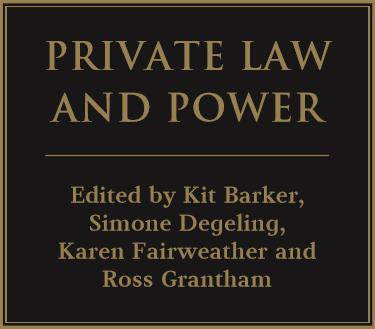 Power imbalances are rife through modern society. The State has wide-ranging discretions as to whether it should grant a business licence, take custody of a child, or rezone a property – all of which have the potential to harm or help individuals.
Power imbalances are rife through modern society. The State has wide-ranging discretions as to whether it should grant a business licence, take custody of a child, or rezone a property – all of which have the potential to harm or help individuals.
Similarly, private corporations have long held intimate relations with the media, helping to shape public debate and market demand, far beyond what an individual may hope to accomplish.
Multinational banks are now too big to fail, and receive bailouts in times of economic struggle when small and medium enterprises quietly vanish. Religious organisations overlook, or cover up, historic acts of sexual abuse, but are often not obliged to compensate victims properly. As the State, corporations and other private institutions grow larger and more important in their role of gluing society together, the attendant power imbalances grow as well.
Private law – those laws protecting private, individual interests, has long shaped the exercise of power – it governs almost all our daily interactions. However, more often than not, the law is used in favour of those already in power, rather than offering individuals on the less-optimal end of the bargain a measure of redress.
Some exceptions apply. For example, multinationals may no longer sue for defamation in Australia. Were this not the case, these large corporations could use their resources to silence critics and stifle free speech. Legislatures and courts are increasingly aware of the fact that relative power differences must be taken into account when either drafting or applying the law.
However, if private law is to truly address power imbalances between individuals and the State, or the corporation, hard questions need answering about how private law relates to, and influences power. Private Law and Power, edited by Professor Kit Barker, Professor Simone Degeling (UNSW), Karen Fairweather and Professor Ross Grantham, with a forward by Justice Edelman – recent appointee to the High Court of Australia, discusses these challenges.
From the preface:
“The various chapters of this work examine the dynamics of the relationship between private law and power from a number of different perspectives — historical, theoretical, doctrinal and comparative. They have been commissioned from leading experts in the field of private law, from several different Commonwealth Jurisdictions (Australia, the UK, Canada and New Zealand), each with expertise in the particular sphere of their contribution. They aim to illuminate the past and assist in resolving some contemporary, difficult legal issues relating to the shape, scope and content of private law and its difficult role and relationship with power.”
Private Law and Power originated from the Australian Centre for Private Law in the TC Beirne School of Law, The University of Queensland. It is available now through Hart Publishing.



